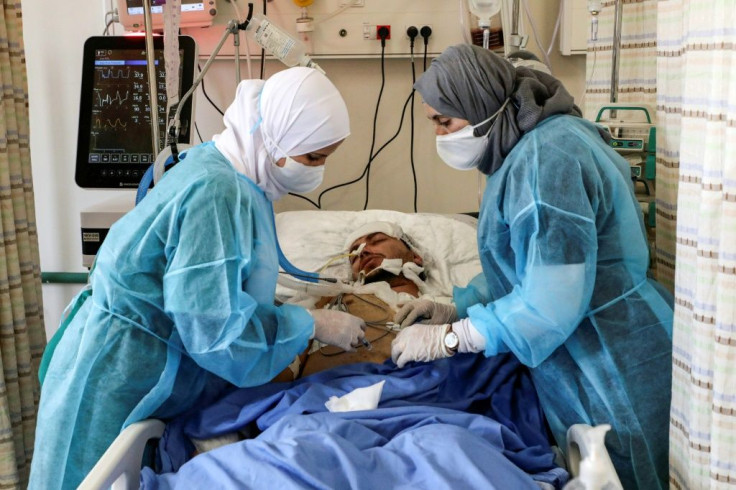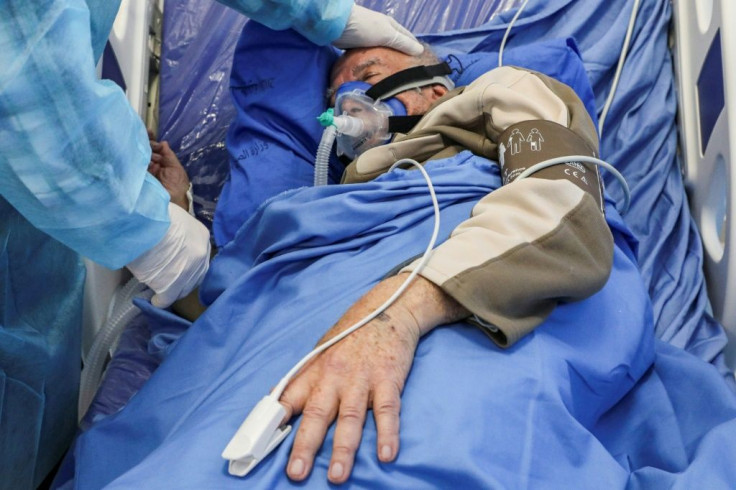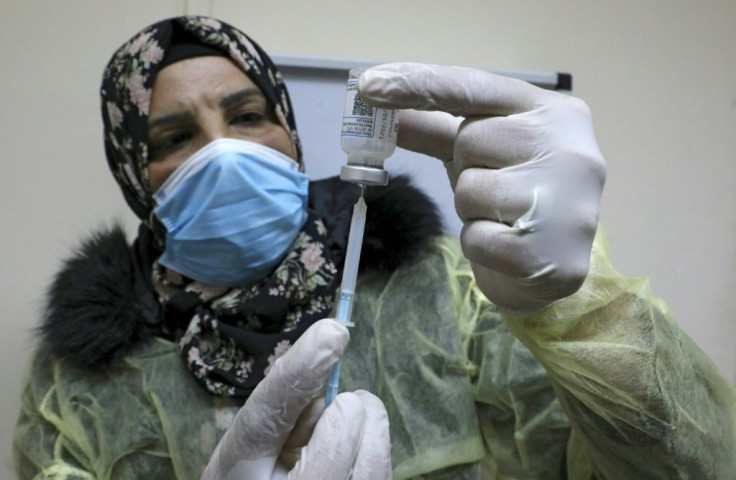West Bank Overwhelmed As Israel Relaxes Virus Rules
As Israel pushes ahead with one of the world's most intense coronavirus vaccination campaigns and normality slowly returns, nearby Palestinians without access to vaccines are flooding hospitals already at breaking point.
"We have reached the red line," said Palestinian minister Mai al-Kaila.
"The alarm has been rung in Palestine, the epidemiological situation is very dangerous."
In Israel more than 4.3 million people -- nearly 46 percent of the population -- have been fully inoculated against the coronavirus with twin doses of the Pfizer/BioNTech jab.
The country is gradually reopening hotels, along with restaurants, bars and cafes.
That is in stark contrast to the occupied West Bank, where aside from medical staff and some 90,000 workers with permits to enter Israel, only a handful of the 2.8 million residents have received jabs.

On Wednesday, the Palestinian Authority took delivery of 60,000 Pfizer-BioNTech and AstraZeneca jabs via the UN's Covax programme.
But their arrival comes as hospitals battle to treat a flood of Covid-19 patients.
In the emergency department of a Ramallah medical complex, an eight-year-old girl with Covid-19 struggles with her oxygen tube.
Close by, a man in his sixties watches from a resuscitation room as other patients groan in their beds.
The ward is heavy with foul air.
The emergency unit is swamped, so authorities have started to equip three large caravan trailers outside to cope with the influx of patients.

"Sometimes, because of the coronavirus crisis, we have to wait for one of the patients to die in the hospital so we can transfer another one into the emergency room," said a hospital official, requesting anonymity.
The situation in this large hospital in Ramallah, the main city in the West Bank, some 15 kilometres (10 miles) north of Jerusalem, is repeated elsewhere across the territory.
When Israel launched its vaccination campaign in December, rights groups such as Amnesty International and Palestinian officials implored it to extend the vaccination campaign to the West Bank, which it has occupied since 1967.
But Israel refused, arguing it had no obligation to provide vaccines because health responsibilities fall to the Palestinian Authority.

Today the number of daily cases in the West Bank, home to 2.8 million Palestinians, now slightly exceeds that of the whole of Israel -- population nine million.
That is pushing Palestinian hospitals to breaking point.
The PA said this week the health system was 100 percent full and a new wave of patients was exceeding its ability to cope.
In the West Bank, more than 156,000 coronavirus cases have been recorded, including 1,745 deaths.
At the Dora hospital in Hebron, a large city in the south of the West Bank, medical director Mohammed Rabei said he was overwhelmed.
The hospital usually has a capacity of 60 beds, but staff have squeezed in more to increase it to 80.
But the number needing hospital beds continues to rise, Rabei said.
"We must find other solutions" to treat critically sick patients with coronavirus, Rabei told AFP.
"There has always been a shortage of staff here... but these days, the teams are working under pressure, lacking days off, and they are exhausted."
In Silwad, north of Ramallah, more than 50 oxygen machines were donated by Palestinian-Americans, at a cost of around $1,000 each, to help treat coronavirus patients at home.
After 10 residents died in medical centres and hospitals in Ramallah, new patients now "refuse to go to the hospitals", said Ramallah's mayor, Osama Hammad.
"We had no choice but to ask for oxygen machines... treating them in the local clinic, rather than them going to die in the big hospitals," says Hammad.
Israel, which has access to vaccine supplies through an agreement with Pfizer, has provided 5,000 doses to Palestinian medical personnel.
It has also provided jabs for some 90,000 Palestinians who cross over to work in Israel, or in Jewish settlements in the West Bank.
Meanwhile, the PA is waiting for 100,000 vaccine doses to be delivered from China.
Many in Ramallah are gloomy about the future.
"If we had started vaccinating at the same time as Israel, we would have no problem," said one health ministry official.
© Copyright AFP 2024. All rights reserved.





















